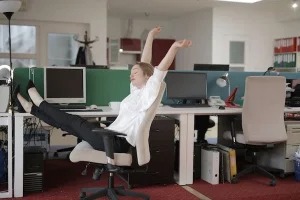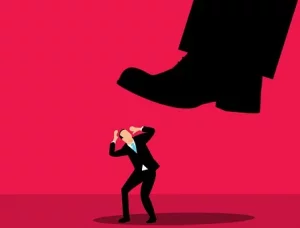-These days we talk about toxic environments, toxic work places, toxic marriages. The question is what really makes this toxic? What does this mean. Let’s explore a bit today. We will concentrate on understanding what a toxic environment is and what potential causes are. I will explore later what you can do about it in a later blog.
One thing one needs to understand: a toxic environment can be toxic either to individuals or to all. Very often when it is toxic to individuals, others have either not understood that it is toxic yet, or are in denial. If you experience an environment as toxic it is valid and you have a right to deal with it. Your feelings are valid.

What does toxic environment actually mean – what does it look like?

How do I recognize a toxic work environment? To get to the bottom of this I did a quick internet search and it came up with the following:
- There are no boundaries around work – role confusion, your job descriptions seems like just a piece of paper
- Interpersonal relationships aren’t healthy – People don’t trust each other, People treat each other with contempt, lots of gossip
- There is no room to make mistakes
- No support for growth – Senior positions always given to outsiders
- Gaslighting
- People regularly feel stressed – you will see that by the number of people who look for other jobs while at work. How often do you see CVs printed out on the printer? People are disengaged and you have a high turnover. In such situations morale tends to be low.
- A culture of overwork – both work load and hours worked. Overtime is the norm, the tale of “a good performer works overtime” is spread by Senior People. Contractual hours are not respected. Your feel guilty to take time off when you are sick.
- Employees are treated in unacceptable ways like bullying, poor behaviors, poor communication culture, managerial tyranny, real issues are not dealt with.
- Praise and recognition are missing
I compiled this from bits and pieces of several articles I found, but mainly from this one: “9 Signs of Toxic Work Environment – and what to do about it”
If you see any of these symptoms, start thinking and analyzing how toxic the environment is for you.
What are the causes of these symptoms?
This actually all is poor leadership – please refer to my many blogs about leadership. Leadership should never be telling people what to do. True leadership that brings out the best in people and helps people grow. This includes identifying and counteracting anything that can cause an environment to become toxic.
These are some of the issues that often remain unaddressed and then turn the environment to become toxic.
- Poor Culture
- Inefficient Leadership understanding, maturity & style
- Harmful employees continue to stay and continue their behavior
- Poor HR skills – this includes, no discussions on career posts, always looking outward for the next leader, not preparing people for future leadership roles with leadership training, no mentorship
How do I recognize that an environment is toxic for me?

Remember, I said an environment can be toxic for some and others feel comfortable. That does NOT make you weak. It is important to recognize what affects you. So here are some important pointers that you can use to identify a toxic situation. One or a combination of several can apply
- You have to explain yourself to often
- Feeling unappreciated
- No future path, no support
- Bullying
- Being overlooked
- Gaslighting – resulting in feeling unsafe
- No space to voice your concerns or ask questions
- Overtime is expected
- Job Description does not count
- Workload is unrealistic
- No support among peers
Why do I perceive one environment more toxic than others
This is directly related to your previous experience and a multitude of other factors. Your previous traumas affect this. The situations reminds you of previous experience. Maybe you are more aware of what is a toxic environment.
Where do we go from here?
Once you have identified a situation as toxic, you need to make decisions for yourself. Where do you want to go from here? What do your want to and can you do about this.
Let’s continue exploring in future blogs. Meanwhile read my blogs on leadership.

 We are so used to simply replying that we are well. Let’s take time and think about your response next time you are asked.
We are so used to simply replying that we are well. Let’s take time and think about your response next time you are asked.







 So learn to listen to your body and take effective breaks. It is ok!
So learn to listen to your body and take effective breaks. It is ok!


